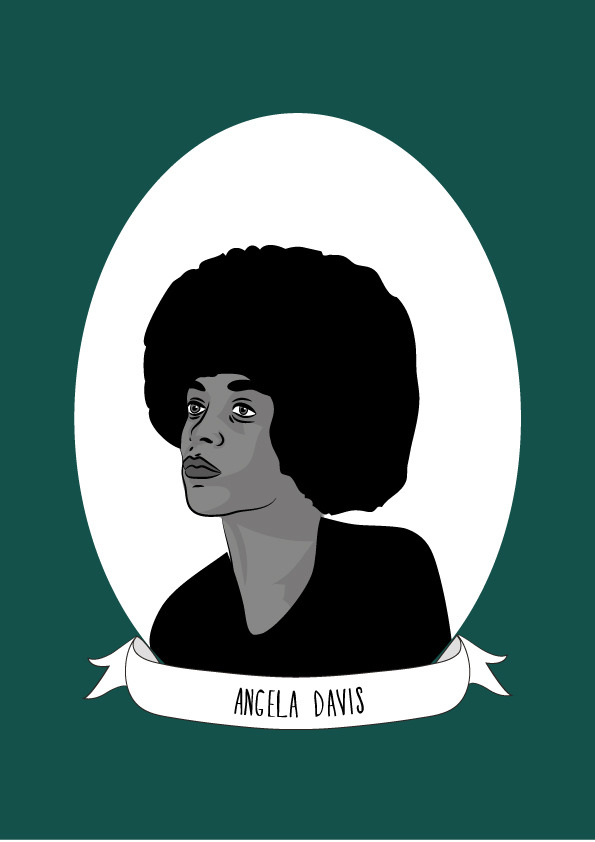Angela Davis is an American academic, Civil Rights Activist, scholar and Women’s Rights Activist who advocates for the oppressed.
Davis’ political activism began when she was a child in Birmingham, Alabama. She lived in the “Dynamite Hill” neighbourhood, which was marked by racial conflict and experienced racial prejudice and discrimination. As a teenager she organised interracial study groups, which were broken up by the police. She knew several of the young African-American girls killed in the Birmingham church bombing of 1963.
Davis’ mother, Sallye Bell Davis, was a national officer and leading organiser of the Southern Negro Youth Congress, an organisation heavily influenced by the Communist Party. Davis grew up with the ideas of Communism and was recruited by Advance, a Communist youth group while attending Elisabeth Irwin High School in Greenwich Village, an integrated school that she had gained a place at through the American Friends Service Committee program.
Davis attended Brandeis University in Waltham, Massachusetts. She was one of three black students in her freshman class. At a rally during the Cuban Missile Crisis she met Frankfurt School philosopher Herbert Marcuse and became his student. She worked part-time and earned enough money to travel to the eighth World Festival of Youth and Students in Helsinki, Finland. On her return home she was interviewed by the FBI about her attendance at the Communist-sponsored festival.
After completing her degree she became a graduate student at the University of California, San Diego where she received her master’s degree. She went on to receive her doctorate in philosophy from Humboldt University in East Berlin.
In the late 1960s she joined the Black Panthers and the all-black Che-Lumumba Club, a branch of the Communist Party. Davis was also known as a radical feminist and activist at this time and her associations with politics – communism in particular – got her fired from her job as a Professor at the University of California, Los Angeles. She appealed in court and got her job back.
Davis was a supporter of three inmates (John W. Cluchette, Fleeta Drumgo and George Lester Jackson) accused of killing a prison guard at Soledad Prison. Several African-American inmates had been killed in a fight by another guard beforehand. Some thought these prisoners were being used as scapegoats because of the political work within the prison.
During Jackson’s trial in August 1970, an escape attempt was made and several people in the courtroom were killed. A warrant was issued for Davis’ arrest as the guns used were registered to her, and she was in correspondence with one of the inmates.
Davis fled and the FBI director J. Edgar Hoover made her the third woman and the 309th person to appear on the FBI’s Ten Most Wanted Fugitive List. In October that year she was arrested, she declared her innocence before the court and nation at the Marin County Superior Court. Thousands of people, convinced of her innocence organised a liberation movement. By February 1971 more than 200 local committees in the United States, and 67 in foreign countries worked to liberate Angela Davis from prison. Thanks, in part, to this support she was released in 1972 after an all-white jury delivered a non-guilty verdict at her trial.
Davis is now Distinguished Professor Emerita in the History of Consciousness and Feminist Studies Departments at the University of California, Santa Cruz. This, despite the fact that Former California Governor Ronald Reagan once vowed that she would never again teach in the University of California system.
